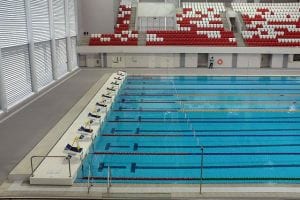Pontocerebellar Hypoplasia
What is pontocerebellar hypoplasia?
Pontocerebellar hypoplasia is an umbrella term for a group of conditions that all impact the development of the brain. The cerebellum and the pons are the most affected, although any part of the brain can face impaired growth as well.
There are at least ten forms of this pontocerebellar hypoplasia, the majority of which can be detected either before birth or directly after. Most forms result in death in childhood, although some affected individuals live into adulthood.
What are the symptoms of pontocerebellar hypoplasia?
Major symptoms include:
- Delayed development
- Intellectual disability
- Impaired brain development
- Issues with movement
- Microcephaly
- Trouble swallowing
- Stiffness
- No communication
Some affected individuals experience seizures, impaired vision, a lack of voluntary motor skills, and abnormal movement patterns as well.
What causes pontocerebellar hypoplasia?
Different genes are responsible for different forms of pontocerebellar hypoplasia, with the majority of cases being the result of a mutated EXOSC3 gene. Other genes that can cause this condition include TSEN54, VRK1, RARS2, SEPSECS, TSEN34, TSEN2, and TSEN54.
The commonality between these genes is that they all play a role in the development and survival of neurons, and they are all inherited in an autosomal recessive pattern.
How is pontocerebellar hypoplasia diagnosed?
In some cases, this condition can be diagnosed before a child is born through an ultrasound, but in most cases the diagnosis comes right after birth. Genetic testing can confirm a diagnosis, which is usually suspected after doctors notice the characteristic symptoms. Other tests are used to assess each case, such as MRIs, ultrasounds, nerve conduction studies, and metabolic evaluations.
What are the treatments for pontocerebellar hypoplasia?
There is no cure for this condition; treatment is symptomatic.
Where can I find out more about pontocerebellar hypoplasia?
Pontocerebellar Hypoplasia Articles


Monty Has Pontocerebellar Hypoplasia, And He Wants Improvements for Rare Disease Patients




